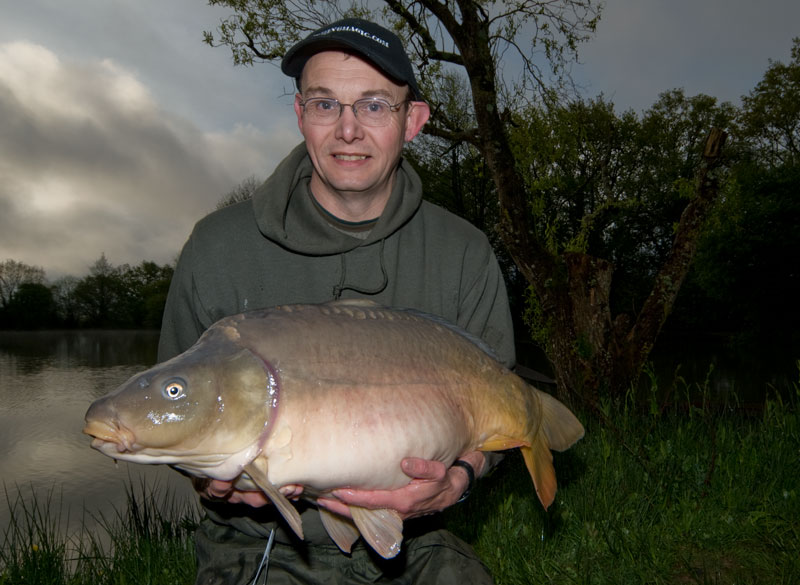Publicity – A little too precious?
Recent outbursts on otters signal that sometimes we take our sport a little too seriously for our own good.
It is tremendously exciting to catch big fish but in the end, no-one’s keeping score, and a more pragmatic and relaxed approach to our fishing is more likely to win friends for angling than the current histrionics.
I know that my header for these articles says I’ve been fishing 37 years but I first fished in 1963, and took a keen interest from 1968 even if I wasn’t tremendously successful for a while (nothing’s changed there then!). Forty years is long enough to witness all sorts of peaks and troughs on various rivers and lakes. Some fantastic fishing booms have lasted a decade or more, others for much shorter periods of a mere couple of years. Some waters have had history-writing booms, declined badly then made dramatic comebacks. I even know of one small pond dug in 1984 that flourished for a decade yet within 20 years had silted up, been sold, and today is rapidly reverting to a fishless swamp. When diseases like roach disease and perch disease struck the effects were catastrophic.
It is easy to see that many factors contribute to these booms/declines; species domination, pesticides, dredging, floods, droughts, disease, predation, angling pressure and ageing fish populations are just a sample. Often these factors interact in complex and not totally understood ways. The impact of a single event may take years even decades to be fully understood if at all.
What I do know is that whatever fishing we are enjoying today, there is no guarantee it will be the same in a year’s time, five year’s time never mind a decade. Anglers have always complained that the fishing ain’t what it used to be, and I dare say that will never change. The secret, if there is one, is to enjoy what you’ve got and no more.
The fish, the rivers and the lakes owe you precisely nothing no matter how much effort you might put in, how good or famous an angler you are, or how desperate you are to reach some magical total. The real magic is retaining the mystery in what you do, in exercising the angling skills you have and in appreciating not just the fish you catch but also the surroundings you do it in. It’s all right for him, I hear you mutter, living near several fabulous rivers and numerous lakes with the sea close by to boot. Yet I can show you a long list of local venues no longer available, no longer worth fishing or otherwise destroyed that take the edge off this angling paradise. It is true that I can fish waters containing 3lb roach, 8lb chub, 16lb barbel, 50lb carp, 12lb tench, 15lb bream, 4lb perch, 3lb grayling… all within 15 miles of home, and that’s just the start! But if truth were known, I’ve never actually seen a 7lb chub, 7lb tench, 9lb bream, 40lb carp, 4lb perch or 3lb grayling on the bank. Do I care? Not that much, though my dreams live on. I frequently get a lot of enjoyment trying to catch 3lb chub and pound roach on the upper Stour where peace and quiet is a vital ingredient.
Yet I can see that these tremendous fish all live on borrowed time. None of them will live forever for a start. The ever-present threat of pollution is never that far away though fortunately a mostly rare one. And to return to the starting line of this article, there is increasing predation with little real chance of turning the tide. But whatever happens there will still be some interesting fishing to be had; quite what form it’ll take is unknown but isn’t that the beauty of angling?
Let’s look at the wider picture; nationally, there are some waters that hold extremely big fish that are threatened by otters. That’s not the otter’s fault, nor is it the fault of those agencies that have sought to bring the otter back to its former haunts and numbers in the British Isles. Like our precious fish, it will not all be plain sailing for the otters; they are subject to the same problems as the fish (apart from angling pressure) plus one or two of their own, and indeed, some of the fish population problems will affect otters in the long term. Other species could follow the continuing decline of dace and eels, and the authorities may finally be forced to do something about cormorants.
But, but, but, what if I (imagine the I is a famous renowned big fish angler) can no longer catch 7lb chub, 15lb barbel…wouldn’t that be a catastrophe? Not really. Remember 15 years ago when you were content to catch 5lb chub and 10lb barbel? There is no God-given right to these exceptional fish that have occurred because of some incredible culmination of ideal conditions that might not recur for another hundred years. And because fishing success is all relative, frequently exaggerated (fortunately there are plenty of truthful anglers but not all of them), and that in the end no one actually verifies anyone’s tally of big fish, it doesn’t actually matter except to the person involved.
So I’d like to see less histrionics about the loss of a few very big fish. These losses affect a microscopic number of anglers in this country and alienating the public at large is a heavy price to pay just to sustain the egos of the few.













